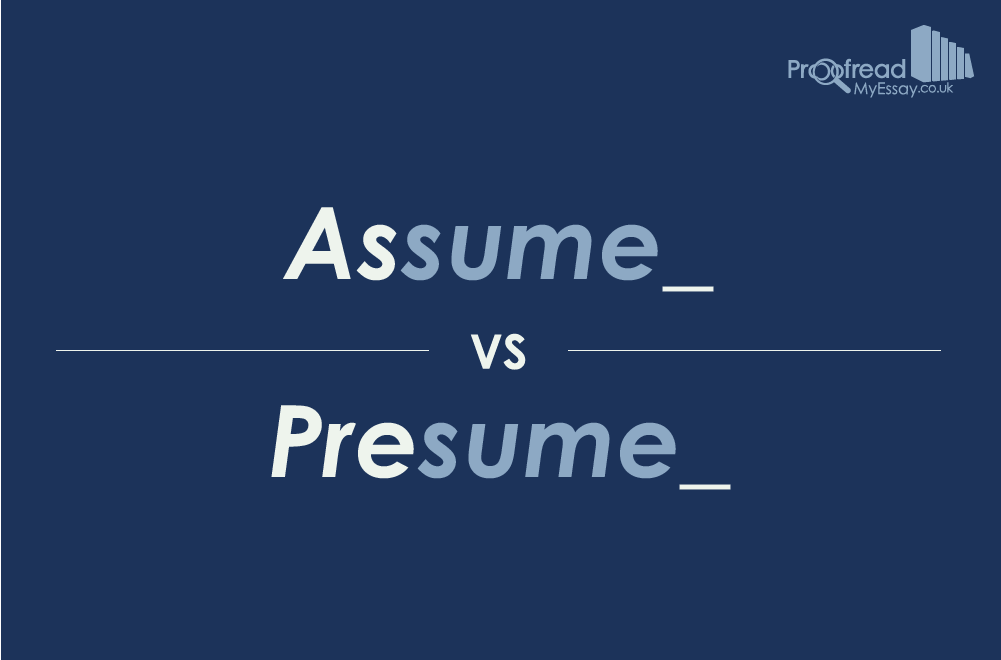Herein, we’re looking at two words that are frequently used interchangeably, yet which have importantly distinct meanings once you check carefully: ‘presume’ and ‘assume’.
These terms are actually fairly similar in some respects, since both roughly mean ‘suppose’. Precision is vital in academic writing, however, so keep the following difference in mind.
Assume (Take for Granted Without Proof)
In its most common form, ‘assume’ means to take for granted without proof or evidence. For instance, if someone served beef to a vegetarian because they’d failed to check their dietary needs, they might explain their actions by saying:
I just assumed you ate meat!

Mistakes like this are also why some people make the spelling-based joke that ‘assume’ makes an ‘ass’ out of ‘u’ and ‘me’. Of course, we’d never make a pun like this. (If you’ve read this blog before, you already know that our puns are often far worse.)
A secondary meaning of ‘assume’ is ‘take on’ or ‘adopt’, especially in relation to responsibilities or characteristics:
After Bob retired, Sally assumed his duties around the office.
This use is a little less common than ‘assume’ meaning ‘suppose without evidence’, but it’s still worth remembering in case you come across it in formal settings.
Presume (Suppose Based Upon Probability)
While ‘presume’ still means ‘suppose’, it usually refers to a guess based upon evidence. For instance, if someone complained about having been standing up all day, you might say:
I presume you’d like to sit down now, then?
Find this useful?
Subscribe to our newsletter and get writing tips from our editors straight to your inbox.
Another helpful example comes in the famous greeting that explorer Henry Morton offered David Livingstone upon locating him in the African jungle: ‘Dr Livingstone, I presume?’

This is correct because Livingstone was the only white European in that part of Africa at the time, so Morton could reasonably suppose that the white man he’d found was Livingstone!
However, ‘presume’ can also mean ‘act with unwarranted boldness’. If we were to correct Queen Elizabeth II on her grammar, for instance, she might respond with:
‘How dare you presume to correct me! Off with their heads!’
That might seem extreme, but the queen in Alice in Wonderland says it all the time, so we presume that this is what the real Queen would say under similar circumstances.
Assume or Presume?
The main difference between ‘assuming’ and ‘presuming’ something is that a presumption is stronger, since it’s based at least partially on evidence. Consequently, these terms shouldn’t be confused if you want to ensure clear communication:
Assume = Take for granted without proof
Presume = Suppose based upon probability



